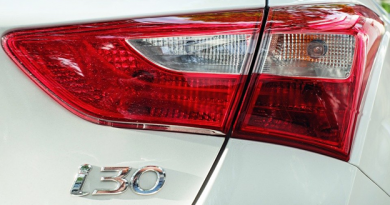Are Cyber Schools A Sustainable Solution for the Future?
Sustainability become a major topic in the past few years as people have become better informed about how their consumption and lifestyle choices can impact the environment. Recently, many school systems have started looking for ways to make education more sustainable and cut down on their own carbon footprint.
Cyber schools, sometimes called virtual schools, provide students with education over the internet — and in some districts, they’re being considered as a possible solution to education’s sustainability problem.
Below, we’ll break down the current sustainability challenges faced by educators, how cyber schools work and whether or not they may be a sustainable alternative to traditional schools in the future.
-
Sustainability Difficulties in Traditional Education
On average, energy is one of the biggest costs for American schools — second only to faculty salaries.
While advanced technology — like smart thermometers and paperless note-taking systems — can make traditional schools more environmentally-friendly, there’s only so much that can be improved when education is centralized in a building that needs to be climate-controlled, and when students need to be transported to and from class.
Many eco-friendly measures are also not a possibility for schools with fewer resources. A well-funded school in a wealthy neighborhood may be able to afford replacing every light bulb in the school with high-efficiency LED bulbs or able to install aerators that reduce water use. A school in a poorer area may not be so fortunate.
Transportation is especially unsustainable in rural areas or large school districts, where schools can be few and far between and students may need to travel for upwards of 30 minutes or an hour just to get to school.
Carpooling can help reduce the environmental cost of transporting students, but it relies on parent’s schedules which aren’t always predictable. Like school buses, carpooling is also not nearly as practical in rural areas, where any two students might live miles and miles away from each other.
-
Cyber Schools and Sustainability
Like traditional schools, cyber schools will hire teachers and administrators — but instead of delivering education in a central building, they use web-based education systems to allow teachers to host classes, assign homework, hold discussions and give feedback and grades. Also like most traditional schools, cyber schools typically provide a full K-12 education.
Cyber schools are often considered more sustainable than traditional schooling because they remove most of what makes traditional schools so resource-intensive while preserving the students’ education experience. Cyber schools require no centralized building for students and teachers, which saves both students and the school energy and resources — no building to heat or cool and no need to transport students.
Some traditional schools are even using techniques brought over from virtual schooling to make themselves more sustainable — like, for instance, virtual field trips.
Cyber schools also give parents and students more control over their own food. When a student learns at home, they don’t need to pack a lunch or buy one at school — saving themselves a plastic bag, a Styrofoam tray and making it easier for them to keep leftovers.
-
Other Cyber School Advantages
Despite the newness of cyber schools as a teaching method compared to traditional schools, parents are often just as satisfied with the quality of education they provide. For example, more than 90 percent of families attending CCA, a Pennsylvania-based cyber school, said they were extremely satisfied with the program.
Cyber schools can also expand the range of classes available because a single teacher with subject expertise can teach students, no matter where they are in the country. This can mean greater variety of AP classes or expanded language options — it’s not uncommon for cyber schools to offer classes in Chinese, Russian and Arabic in addition to the more standard French and Spanish.
Online schooling can also extend the reach of talented teachers. Some cyber schools have adopted a teaching model in which one master teaches coordinates and trains a number of other teachers. In some cases, this model of educator organization has been found to significantly increase students’ math testing scores.
Cyber schools can also offer a great deal of schedule flexibility that can be a better fit for students with unique schedules, sleep patterns or other needs.
Cyber Schools and Sustainability in Education
Right now, many school systems are looking for ways to make education more environmentally friendly. Because cyber schools use the internet to deliver education to students, they’re considered a serious possibility when it comes to making schools more sustainable.
It should also be said that while cyber schools are a possible solution to education’s sustainability problem, they are a new method of schooling and in many ways untested. However, current evidence shows that these schools can be effective, and that parents with children currently enrolled in cyber schools are satisfied with the learning experience they provide.
Likely that cyber schools will continue to be a part of the conversation around sustainability in education — especially as more and more people become interested in the environment and look for ways to make their lives more eco-friendly.




